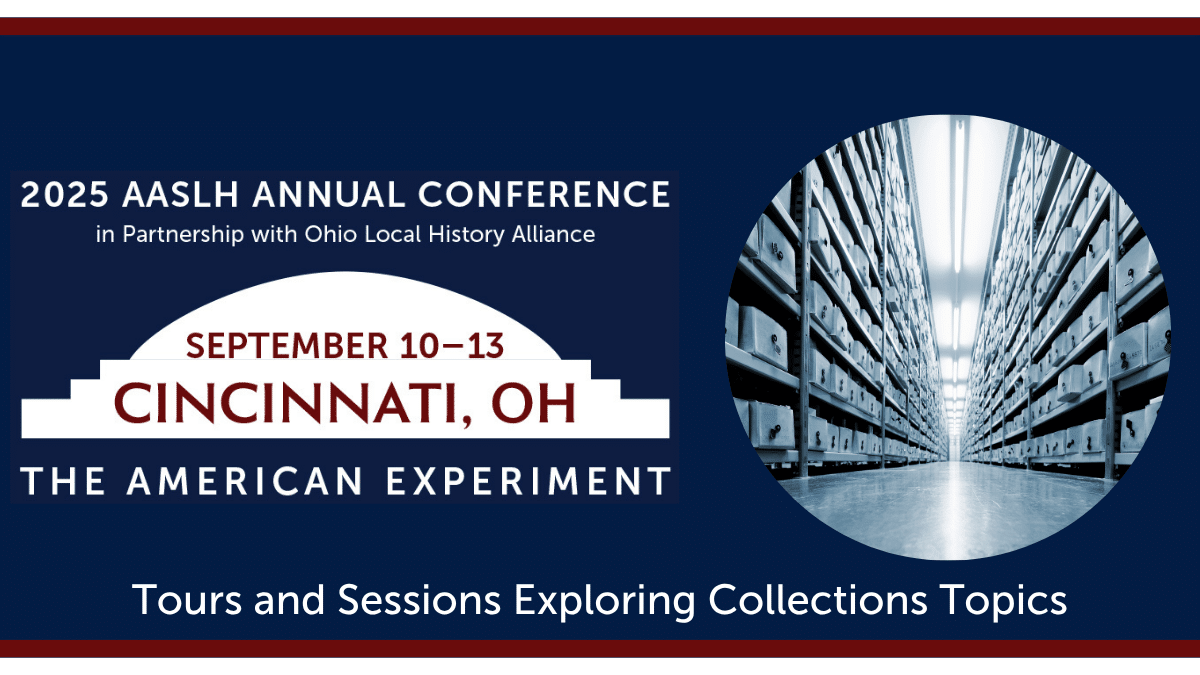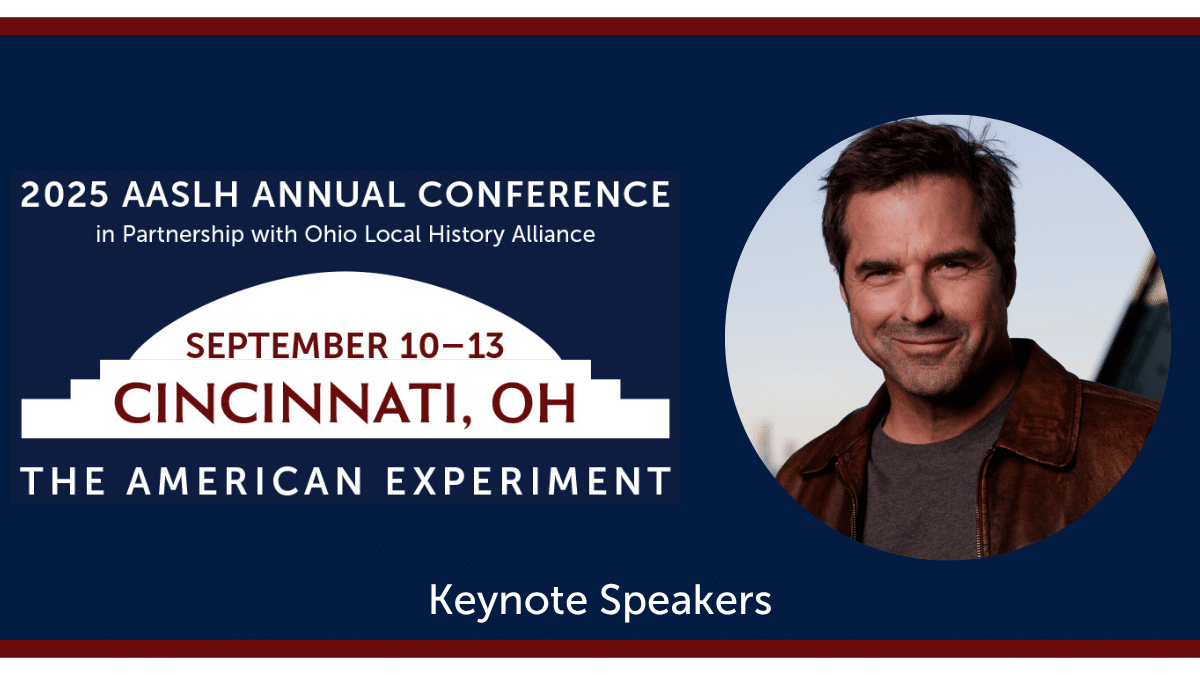
By John Dichtl, AASLH President and CEO
If you are fired up with patriotism and hope after the 4th of July weekend or simply find yourself with more worries about the future of our constitutional republic, it’s time to get civic. Whether just dipping a toe in the water or diving right into the deep end of civics this summer, it’s time to refresh your organization’s civic messaging.
It is time to link the work you do for history to the labor of promoting and supporting civic values and knowledge. Our country needs it, our communities would be better for it, and over the next four years leading to the 250th, the public will be ready for it.
Several major civic and history efforts are afloat that can help.
First off, our friends at Made By US (AASLH is a member) concluded another year of Civic Season (Juneteenth to July 4) with a strong showing of events, activities, and campaign activity across the country. As Civic Season was wrapping up this year, the Andrew Mellon Foundation committed to supporting the program over the next two years, carrying this tradition through 2023 and 2024. That’s call for celebration and a commitment to getting more history organizations involved in civic programs that can become part of next year’s Civic Season.
- Start planning your own civics and history initiative for 2023.
The $5 billion Civics Secures Democracy Act was revised and reintroduced in the Senate last month, creating a huge opportunity to fund K-12 U.S. history and civics education and programs over the next five years. This is tremendously encouraging. The act’s stated purpose is to “protect the health of our constitutional democracy by prioritizing American history and civics in our nation’s schools.” At least $200 million annually would go to “qualified nonprofit organizations,” such as historical societies and history museums, through competitive grants. Funding would help the nonprofits develop or expand access to civics curricula, instructional models, and other educational programs to enhance student knowledge and achievement in American civics and history. Other facets of the bill create additional footholds for history organizations to participate in this massive expansion of civics and history education. You can read more details here.

Best of all, the bill has bipartisan sponsorship—reflecting the kind of common-ground approach that revitalizing our civic institutions will require. First introduced in 2020 in both the U.S. Senate and the House of Representatives by Senators Chris Coons (D-DE) and John Cornyn (R-TX) and Representatives Rosa DeLauro (D-CT), Tom Cole (R-OK), and Earl Blumenauer (D-OR), the Civics Secures Democracy Act now has four new original cosponsors in the Senate—Senators Angus King (I-ME), Mark Kelly (D-AZ), Jim Inhofe (R-OK), and Bill Cassidy (R-LA). These cosponsors need more support from their colleagues, and we need your help.
- Please call your senators and representatives today. You can also use these CivXNow online advocacy tools to look up your House member, send an email or make a phone call, or spread the word on social media with sample messages and graphics.
Speaking of CivXNow, last month AASLH joined that coalition, which is a project of iCivics, which was founded by Justice Sandra Day O’Connor in 2009 “to ensure that all Americans have the knowledge and will to participate in our unique experiment in self-government.” CivXNow is a cross-partisan coalition to strengthen our constitutional democracy through K-12 civic education. Members include AASLH sister organizations, such as the American Historical Association (AHA), National Council for the Social Studies (NCSS), National Council for History Education (NCHE), and dozens of other civics, democracy, bar foundation, educational, and history organizations.
- Your organization can join the coalition too; learn more here.
If you’ve read this far, you’re likely curious about the deep end of the civics and history swimming pool. Well, the deep water is where the hard swimming and deep diving are needed to counter book banning, gag orders, and censorship regarding history education. Without an understanding of the past, without knowing why our civic institutions function or dysfunction, American youth are blocked from being informed citizens. Over the past year and a half, state legislatures and individual local school boards around the country have raced each other to adopt laws and policies restricting or banning the teaching of certain subjects, notably the history of racism and sexism. These censorship or gag order laws have made teaching even harder (as if our teachers needed more strife and anxiety) and threaten to turn out graduates who have scarce understanding of the full and still relevant history of their communities, states, and country, and the challenges facing a democratic republic.

AASLH is an inaugural partner in the Learn from History coalition, a broad cross section of organizations helping educators offer thorough, accurate, fact-based history. Among other resources, Learn from History offers toolkits for school system leaders, parents, teachers, and school board members.
You can find their toolkits and join the coalition too; learn more here.
If you’re willing to contact local and state officials about educational gag orders and censorship introduced or pending in your area, there are numerous sites, in addition to Learn from History’s, where you can find background information and analysis. Education Week, for example, has been tracking legislative efforts across the country here.
One of the best new resources is a blog post from June at PEN America. A nonprofit founded in 1922, PEN America “stands at the intersection of literature and human rights to protect free expression in the United States and worldwide.” PEN America’s “5 Myths about Educational Gag Orders” explains why there’s a “fundamental asymmetry between a law requiring coverage of a topic and a law prohibiting it.” That is, this is a radical shift in our country where for the first time, states are prohibiting topics rather than mandating coverage of topics.
- Go deep into these five common misconceptions about educational censorship.
In June the American Historical Association launched a Teaching with Integrity initiative, which includes some terrific short videos: “Historians Speak” and “Confronting a Nation’s Past.”
- Spend 8 minutes and 40 seconds viewing these inspiring videos here.
That’s it. Thanks for taking a swim at this hot and fractious time in the calming pool of democracy, history, and civics.



